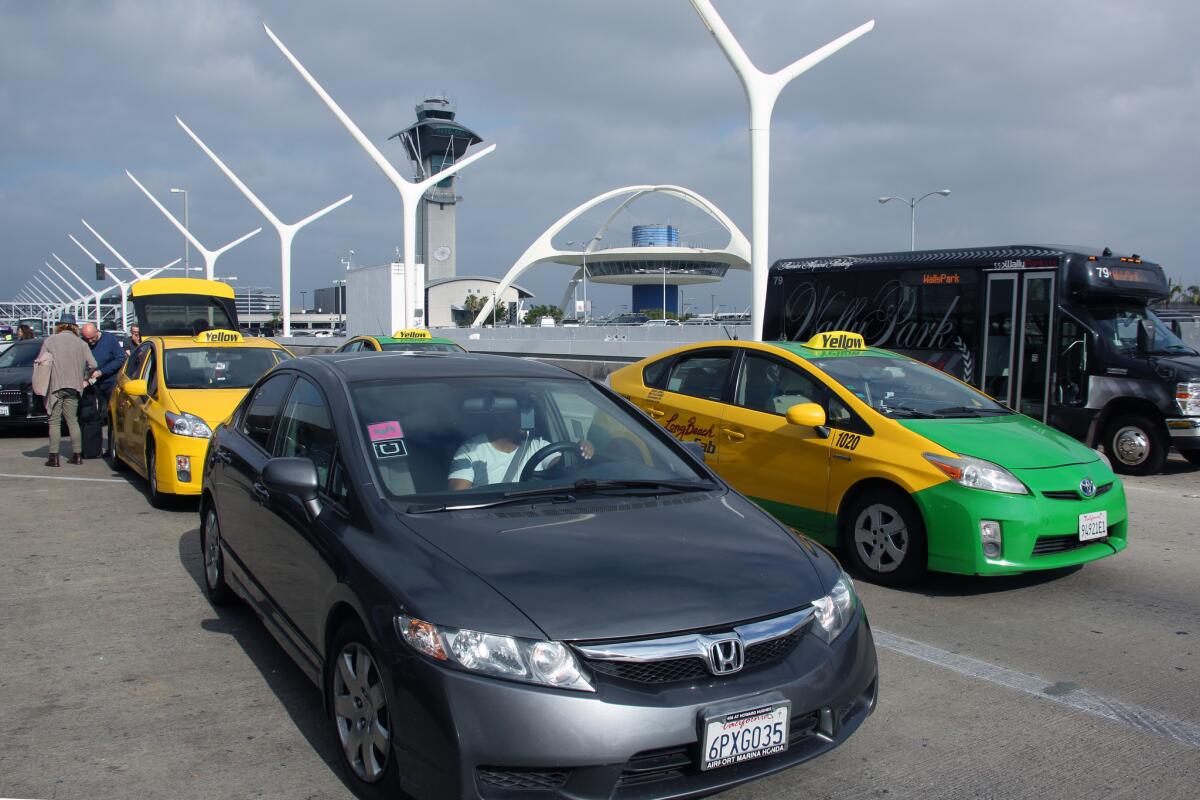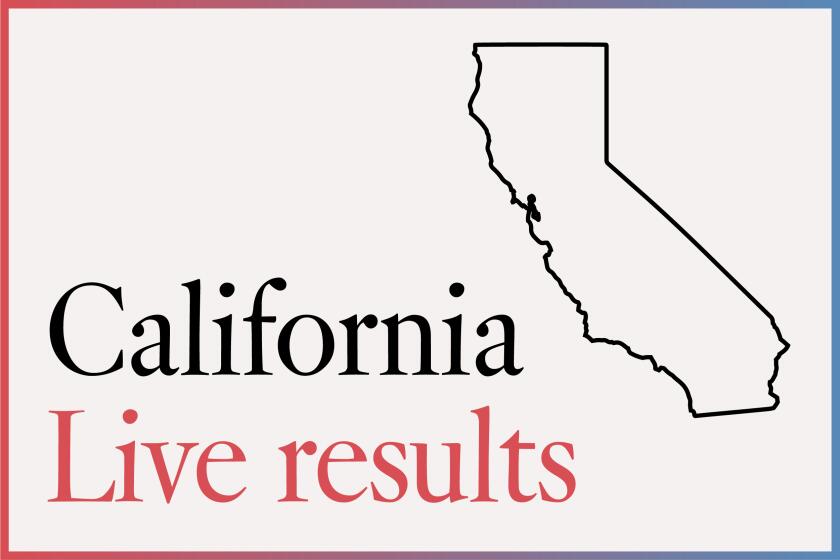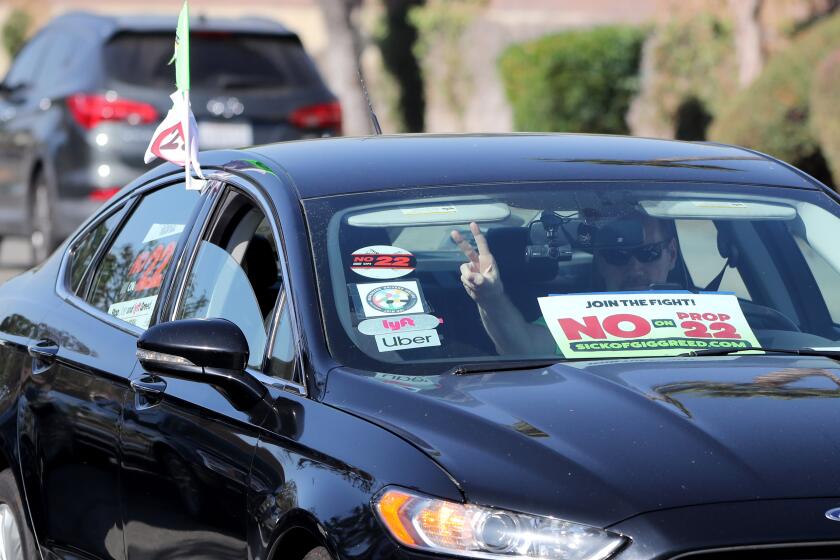California voters approve Prop. 22, allowing Uber and Lyft drivers to remain independent contractors

Californians sided with the $200-million Proposition 22 campaign led by Uber and Lyft, voting to pass the measure and grant ride-hail and delivery companies an exemption from California employment law to continue treating workers as independent contractors.
The fight was one of the most closely watched ballot measure contests in the country and the costliest in state history.
A win for the app-based companies has the potential to create a new campaign paradigm, with companies sidestepping government and spending large sums of money to sway voters with traditional advertisements and more unconventional direct marketing to customers. The measure’s passage also deals a blow to California’s powerful labor unions, underdogs in the race with far fewer financial resources than their foes.
“Yes on 22” led with 58% of the vote, compared with nearly 42%, when the Associated Press called the race after 11 p.m. The ballot measure needed more than 50% of the vote to become law.
“California has spoken, and millions of voters joined their voices with the hundreds of thousands of drivers who want independence plus benefits,” said Geoff Vetter, a spokesman for the “Yes on 22” campaign. “With the passage of Prop. 22, app-based rideshare and delivery drivers across the state will be able to maintain their independence, plus have access to historic new benefits, like a minimum earnings guarantee and health care.”
At the crux of the measure is a debate about the changing American workforce. With Proposition 22, voters were asked to decide whether people who sign into an app to deliver groceries or drive riders to and from the airport should receive the same employment protections, benefits and wages as more traditional workers.
Uber and Lyft have long argued that state regulations fail to account for the complexity of their business models and they should be treated as technology platforms, not transportation providers. The measure allows the companies to avoid paying for a standard, more expensive suite of benefits as required under state law, but still provide workers — who would remain independent contractors — with some benefits.
Proposition 22 requires the companies to provide an hourly wage for time spent driving equal to 120% of either a local or a statewide minimum wage. It also requires that drivers receive a stipend for purchasing health insurance coverage when driving time averages at least 15 hours a week, a stipend that grows larger if average driving time rises to 25 hours a week.
But work hours only include time spent driving to, picking up and carrying a rider or delivery to a destination, not the time spent waiting in between trips. The measure’s passages means workers for ride-hail and delivery companies will receive weaker benefits than they would have under a state law approved last year.
“Rideshare drivers and workers across California refused to back down even as Uber, Lyft and DoorDash plowed a record $200 million into a deceitful campaign to strip workers of the essential protections they need now more than ever,” said Art Pulaski, executive secretary treasurer of the California Labor Federation. “The end of this campaign is only the beginning in the fight to ensure gig workers are provided fair wages, sick pay and care when they’re hurt at work.”
Proposition 22 asks voters to create a unique designation under state employment law for drivers who work for app-based companies.
Labor unions, including the Service Employees International Union and the Teamsters, persuaded the California Legislature in 2019 to pass Assembly Bill 5, which codified and expanded a state Supreme Court ruling that paved the way for classifying more gig workers as employees instead of independent contractors.
Gov. Gavin Newsom publicly encouraged Uber, Lyft and labor to negotiate a compromise that could have created a unique classification allowing the companies to treat their workers as independent contractors and giving unions some ability to organize them, but that deal never materialized.
As talks stalled, Uber, Lyft, DoorDash, Instacart and Postmates turned to the ballot. The companies argued that if Proposition 22 failed, drivers would have lost the flexibility to determine their own schedules, customers could have faced higher prices, and service could have been limited in some areas. Newsom, who signed AB 5, remained neutral on Proposition 22.
The California Legislative Analyst’s Office found that paying for standard benefits and protections makes up about 20% of total employee costs for companies, suggesting a significant increase in business costs if app-based companies would have been required to adhere to AB 5. The analyst’s office also says that rideshare and delivery companies, most of which are headquartered in state, are worth “about as much as Ford, General Motors, and Fiat Chrysler combined.”
The companies spent heavily to protect their business model.
Contributions on both sides totaled more than $224 million, with more than 90% of the money coming from the five app-based companies supporting the measure: Uber, Lyft, DoorDash, Postmates and the parent company of Instacart.













